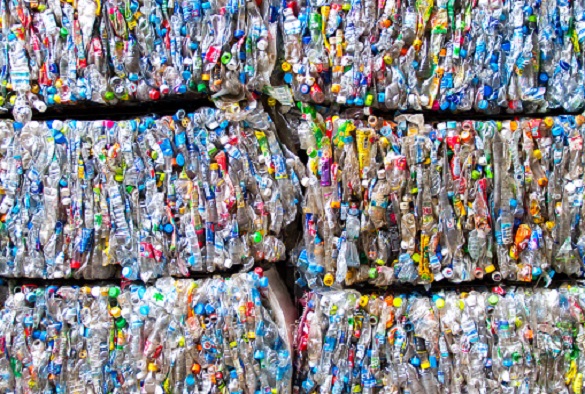Researchers awarded £965k to develop smart sustainable packaging
Published on

Researchers from the University of Liverpool are leading a £965k project that aims to make the plastic packaging used in products such as shampoo bottles more sustainable and environmentally friendly.
Funded by UKRI, the project also involves the University of Manchester, Unilever and Bright Green Plastics.
The aim of the project is to provide the necessary technological advancements to take forward the use of post-consumer recycled (PCR) resin, which can be made by recycling High Density Polyethylene (HDPE), one of the most common plastics used in packaging. This will allow PCR to be more widely adopted in the manufacture of plastic products.
HDPE is used in a wide variety of applications, including plastic bottles, milk jugs, shampoo bottles, bleach bottles. This plastic can be collected and mechanically recycled to produce a PCR resin, a plastic that has a lower environmental footprint compared to new, virgin plastic.
Replacing more of the virgin plastic that is used in packaging with PCR, would be a big step forward in reducing the amount of unrecycled plastic in the market, helping to drive a circular economy approach, as well as reducing greenhouse gas emissions.
However, an increase in PCR content in packaging typically reduces packaging performance, which has limited its wider use in packaging by industry.
To get a better insight into this, the project will use data science combined with detailed materials analysis of the plastics to better understand how HDPE changes during the mechanical recycling process to create PCR and use this new knowledge to develop interventions to improve the performance of PCR.
The project will also investigate how this disruption within the supply and demand for PCR will impact the supply chain. This data will then allow interventions to be selected that deliver the greatest economic, social and environmental benefits.
This project is led by Dr Tom McDonald, a senior lecturer in the University’s Department of Chemistry. He said: “This is an exciting project to be leading which we hope will provide the necessary technological advancements that will increase the incorporation of recycled plastic in packaging.”
“The project aims to better understand the chemistry and properties of post-consumer resin (PCR) through finding out more about how HDPE changes during recycling. This knowledge can be used to invent ways of improving the post-consumer recycled plastic so that more can be used to make HDPE bottles. This change will result in less plastic waste, increased sustainability in plastic packaging and less harm to the environment.”
This project features an interdisciplinary team with researchers in Chemistry (Dr Tom Hasell, Dr Frédéric Blanc and Dr Andy McLauchlin), Computer Science (Dr Vitaliy Kurlin) and Management (Professor Andrew Lyons and Dr Gopalakrishnan Narayanamurthy). In addition to Professor Mike Shaver, Director of the Sustainable Materials Innovation Hub at the University of Manchester.
Alongside the academic team, the project industrial partners, Unilever and Bright Green Plastics, ensure that the research is guided by industrial needs and that the findings have a direct route to market.
Cameron Jones, Vice President, Research and Development Packaging at Unilever, said: “Increasing the use of recycled plastic is vital to stimulate collection, reduce the use of virgin plastics, and thus tackle the issue of plastic waste. This grant will help us better understand recycled plastic as a material so we can use it more widely in different types of packaging. Our goal is to ensure the use of recycled plastic increases and becomes an industry norm.”
Sam Hill, Head of Technical and Quality at Bright Green Plastics said: “Bright Green Plastics are committed to improving the uptake of recycled plastics by striving for excellence throughout our whole recycling process; from sourcing of the waste plastics, sorting and segregation through to formulation and compounding. We are proud to support this project by sharing our experience and knowledge of the UK recycling market and materials.
"We know that by developing a deeper understanding of our raw materials we will be able to serve new customers, producing grades of higher quality than before opening new markets. We believe that interdisciplinary cooperative teams are key to improving the quality of PCR resins as this goal is heavily reliant on the participation of the whole value chain. “
The project is one of ten university-led research projects funded through the NERC Enabling Research in Smart Sustainable Plastic Packaging programme.